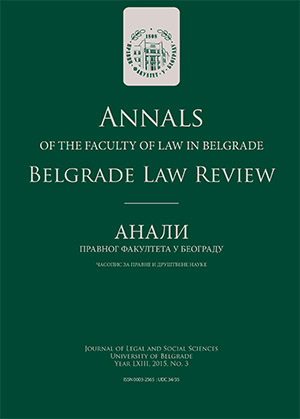SECULARITY AND RELIGIOUS NEUTRALITY IN THE CONTEXT OF DEMOCRACY – ORIGINS AND CONCEPTS
SECULARITY AND RELIGIOUS NEUTRALITY IN THE CONTEXT OF DEMOCRACY – ORIGINS AND CONCEPTS
Author(s): Dušan S. RakitićSubject(s): Government/Political systems, Politics and religion
Published by: Правни факултет Универзитета у Београду
Keywords: Secularity; Neutrality; Post-secular; Church-state cooperation; Corporative Religious freedom;
Summary/Abstract: The paper aims to reflect on utility of principles of future articulation of church-state relations in democratic political systems, particularly in Western democracies, especially with regard to the requirement that the state and law be secular. Secularity was born and grew in the shelter of the Christian philosophical tradition, not only because that tradition assumed respect for human dignity and fundamental freedoms, but also because the Christian doctrine of two empires served as fertile ground for decoupling of politics and religion. Modern-day Western democracy also grew with its roots in Christian heritage and tradition. Consideration is given to the arguments contained in the concept of post-secular society, proposed by Habermas, and in the theses of Pope Benedict XVI, which both suggest that secularity is not an end in itself, as well as that religion provides inner bonds of the society, in terms of identity, solidarity, values, political motivation, that are indispensable for the ability of a society to enjoy democratic process. Particular attention is given to understanding the encounter between Western democracy and Islam, as well as to the question whether secularization of Western democracies can proceed further, or should it backtrack, if democratic standards attained in the West are to be preserved and furthered? Out of the three actualized paradigmatic models of secularity in developed democracies of the West – those of France, the U.S., and Germany – key legal aspects of the last two, which both recognize the role of religious organizations in public life, are also considered. The findings shall be employed for a practical purpose: determining which concept, secularity or religious neutrality of the state, can be more useful for conceiving church-state relations in democratic political systems, political those belonging to the Western type of democracy, in the future.
Journal: Анали Правног факултета у Београду
- Issue Year: 63/2015
- Issue No: 3
- Page Range: 212-233
- Page Count: 22
- Language: English

